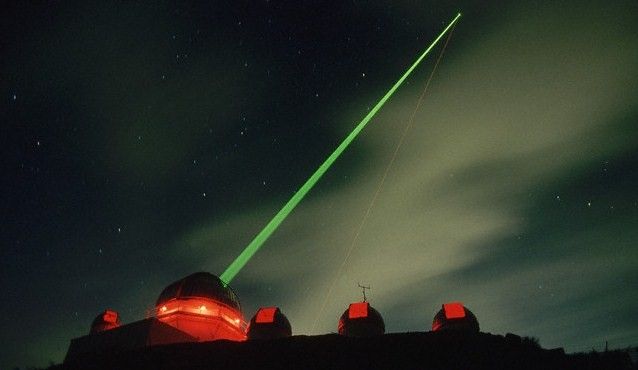
Alien Languages Might Not Be That Different From Ours
by Eric Mack May 27, 2018 (cnet.com)
• In a presentation at the International Space Development Conference in Los Angeles on May 26th, noted linguists Noam Chomsky and Jeffrey Watumull told their audience that “…the Martian language might not be so different from human language”. They have extended their notion of “universal grammar”- where all languages on the planet share common speech patterns – to extraterrestrial civilizations across the galaxy.
• In a separate presentation, linguists Bridget Samuels from the University of Southern California and Jeffrey Punske from Southern Illinois University said, “we can expect that extraterrestrial languages … [to] have a vocabulary consisting of building blocks of meaning that can be combined to create more complex meanings.” “While the possibility of human contact with extraterrestrials seems remote, …the laws of physics, information theory, logic, and mathematics could provide some common ground to start from.”
• The notion here is that while extraterrestrial civilizations may have evolved very differently from us on very different worlds, all species – and by extension all languages – must spring forth from essentially the same elemental soup.
• Messaging Extra-Terrestrial Intelligence (METI) is trying to work out which type of message could be most understandable to extraterrestrials. METI president Douglas Vakoch says, “In the past, messages sent into space have typically been encoded in principles of math and science rather than language. More recently, we’ve sent music.” (see 2:17 minute video below on METI’s efforts to send music to ETs)
• Professor Emeritus Gonzalo Munevar from Lawrence Technological University presented his opposing argument: “An intelligent creature whose main sensory modality is electric rather than visual would have patterns of thought completely foreign to us. …[There’s] no reason to expect similar scientific languages or math” to emerge on distant exoplanets.
• Beyond the obvious language barrier, Vakoch says another challenge is the time required to send and receive messages across interstellar space. A two-way conversation between Earth and the nearest planet beyond our solar system, Proxima Centauri, would require eight years just for us to send out a “hello” and receive a response. METI has already targeted a message to another nearby world, with a response expected in 2042 at the earliest.
• [Editor’s Note] Such efforts by SETI and METI are noble, but futile. The answer to Fermi’s paradox of ‘where are all of the aliens?’ is that they are here, but they are keeping themselves hidden from us. This galaxy, including our star system and planet, is swarming with intelligent beings using a variety highly advanced modes of travel. The good ETs respect the prime directive to not interfere with human technological and spiritual development on earth and they keep themselves hidden from us for the most part. Ironically, this has left the door open for the bad ETs, who don’t give a damn about any prime directive, to infiltrate and control our world which they have done. They keep themselves hidden in order to maintain our illusion of a self-controlled reality. This is the reason why we don’t commonly interact with other ET species, and why these sorts of attempts to make “first contact” cannot succeed. It is up to the extraterrestrials to reveal themselves to us, which could happen very soon. And when it does happen, we will put efforts like SETI and METI to better use.
It could be a Star Trek or Star Wars universe after all. One where a diverse set of intelligent extraterrestrial species from across the galaxies all easily communicate despite some pretty dramatic biological differences.
Some of the world’s leading linguists argue that human languages are connected by a shared “universal grammar.” And now some, including perhaps the most well-known linguist, say they’re optimistic that connection could extend to extraterrestrial languages too.
“To put it whimsically, the Martian language might not be so different from human language after all,” explained Noam Chomsky and Jeffrey Watumull in a presentation at the International Space Development Conference (ISDC) in Los Angeles on Saturday.
Chomsky is a noted author on both linguistics and global politics and is often referred to as the “father of modern linguistics” who pioneered the notion of a universal grammar.

“Chomsky has often said that if a Martian visited Earth, it would think we all speak dialects of the same language, because all terrestrial languages share a common underlying structure,” said Douglas Vakoch, president of METI (short for Messaging Extra-Terrestrial Intelligence), which organized a daylong Language in the Cosmos workshop at ISDC. “But if aliens have language, would it be similar to ours? That’s the big question.”
Linguists Bridget Samuels from the University of Southern California and Jeffrey Punske from Southern Illinois University also argued in a separate presentation at the workshop that some universal factors underlying language might be able to bridge big gaps in alien biology and environment.
“The whole universe is subject to the same laws of physics. For example, there are not that many ways a signal can be transmitted, particularly over large distances,” they explained to me in an email. “Also, we can expect that extraterrestrial languages … have a vocabulary consisting of building blocks of meaning that can be combined to create more complex meanings.”
The notion here is that there are aspects of the universe that are, well, universal. While hypothetical aliens may have evolved very differently from us on very different worlds, all species — and by extension all languages — must spring forth from essentially the same elemental soup.
2:17 minute video on METI’s efforts to send music to ETs
FAIR USE NOTICE: This page contains copyrighted material the use of which has not been specifically authorized by the copyright owner. ExoNews.org distributes this material for the purpose of news reporting, educational research, comment and criticism, constituting Fair Use under 17 U.S.C § 107. Please contact the Editor at ExoNews with any copyright issue.